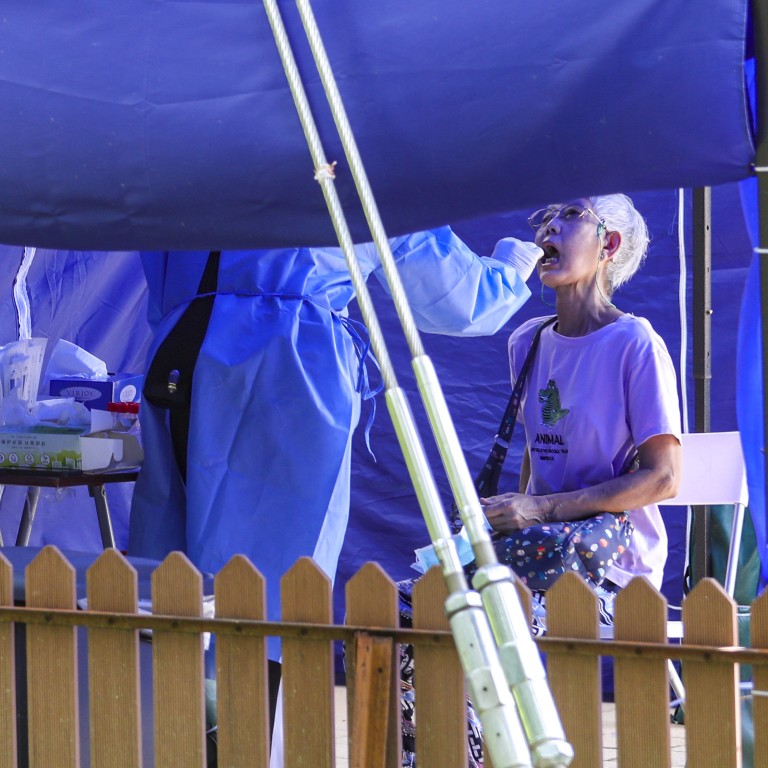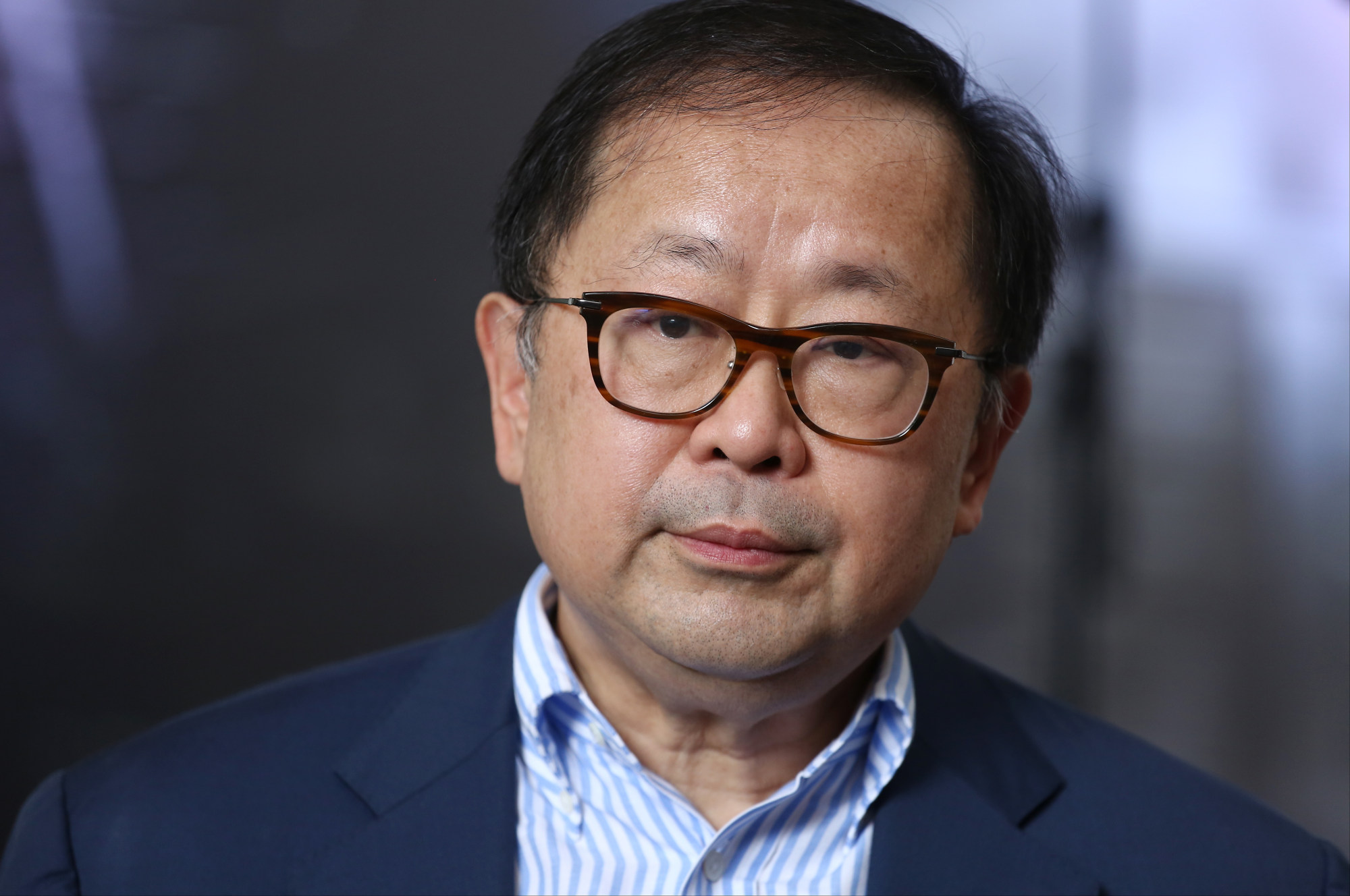
Coronavirus: Hong Kong’s daily infections surpass 4,000, health minister to meet pandemic advisers on Covid strategy
- Severe cases remain low, with 18 and 25 in critical and serious condition respectively, among total of 1,233 patients in public hospitals
- Days after call by experts to boost ‘hybrid immunity’ by easing curbs, health secretary Lo Chung-mau tells Legco that policies have to align with local situation
Hong Kong’s daily coronavirus infections have exceeded the 4,000 mark for the first time since a rebound in June, while the health minister has said he will meet pandemic advisers as soon as possible to discuss strategies on containing the latest surge in cases.
Despite the caseload reaching a new high, Dr Donald Li Kwok-tung, who will become chairman of the Elderly Commission on July 30, on Thursday dismissed the possibility of mandating vaccines for residents in care homes for the elderly, but said boosting the inoculation rate was a priority.
Hong Kong on Thursday logged 4,375 new infections, including 299 imported cases, and three related deaths. The city’s Covid-19 tally stands at 1,308,954 cases, with 9,448 linked fatalities.

The number of severe cases remained low, with 18 and 25 patients in critical and serious condition, respectively, among a total of 1,233 patients being treated in public hospitals.
“The number of confirmed cases has been increasing, but not as fast as what happened in February and March during the fifth wave,” Dr Chuang Shuk-kwan from the Centre for Health Protection (CHP) said.
“But we observed that the trend has been gradually rising and [the caseload] doubled every two weeks. We have not seen a decreasing trend for the time being.”
Hospital Authority Chief Manager Dr Larry Lee Lap-yip said a trial of teleconsultation services for patients isolating at home was launched to ease the pressure on emergency rooms and Covid-19 designated clinics.
Earlier on Thursday, Secretary for Health Lo Chung-mau told his health services panel in the Legislative Council that he would soon call his first meeting to discuss ways to curb the surge in cases with health advisers.
Most Hong Kong Covid inpatients are elderly from community; 3,805 cases logged
Four experts from the University of Hong Kong (HKU), including two government advisers, last week called for boosting “hybrid immunity” among the population before winter by easing social-distancing measures. The approach, centred on exposing people to infections, is in contrast with the city’s “dynamic-zero” stance.
Responding to their suggestions, Lo said the expert group of advisers were informed in late June that pandemic measures had to take into account the local situation, adding authorities would centralise the release of information to avoid confusing the public.
“Many government policies cannot solely rely on foreign theories and practices. We also have to consider Hong Kong’s situation including age, population, vaccination rates, and the capacity of the healthcare system,” he said.
“We will continue to communicate with the experts. We emphasise that after fully communicating with the expert panel, we will explain to the public in a systematic approach … so the public will not receive confusing information from various sources.”
The government last week expanded the Covid-19 Expert Advisory Panel to include three more health advisers. The panel now comprises six members, including HKU professors Ivan Hung Fan-ngai and Yuen Kwok-yung, who last week published an article on possible measures in preparation for a potential sixth wave.

They proposed hybrid immunity as a method to prevent another “catastrophic collapse” of the healthcare system, suggesting gradual exposure to infections through the easing of social-distancing rules and quarantine requirements for incoming travellers.
Hong Kong adopts a “dynamic-zero” strategy, aligned with mainland China, aimed at curbing coronavirus infections by containing outbreaks as fast as possible.
Separately, the Social Welfare Department tightened measures at care homes by requiring staff to undergo a polymerase chain reaction (PCR) test every seven days, in addition to daily rapid antigen tests (RAT), starting from next Wednesday.
Starting from next month, all visitors will have to present a negative PCR test result obtained within 48 hours before entering care homes. From August 28 onwards, the inoculation requirement will be the same as the vaccine pass scheme, under which residents must have received three doses or two jabs within six months to enter certain premises.
Previously, care home staff were only required to do a PCR test every two weeks and a daily RAT test, while visitors had to have received at least two doses of a vaccine and undergo a RAT test at the facilities.
What exactly is Covid ‘hybrid immunity’ and would Hong Kong benefit?
The incoming chairman of the Elderly Commission said boosting the vaccination rate among elderly residents in care homes remained a top priority, but rejected the idea of making it compulsory.
“We should continue explaining to elderly residents the benefits of vaccination and persuade them to receive a jab, instead of making it compulsory, which could lead to low acceptance among them,” said Li, adding that a government initiative allowing medical teams to provide vaccination services at facilities had made the jabs more accessible and had alleviated residents’ concerns.
Chuang of CHP said the vaccination rate for the third dose was not ideal, especially among the elderly. Only 59.35 per cent of those aged between 70 and 79 were triple-vaccinated, while 38.29 per cent of those aged 80 and older had received three doses.
Aside from inoculation, Li said elderly care homes should also enhance infection screening and that requiring staff members to take PCR tests once a week would help.
He said the commission was also examining ventilation systems at care homes, and had sent nurses there to conduct reviews to ensure operators were complying with infection control measures. He also encouraged facilities to resort to innovative technologies to help fight the pandemic, including the use of 3D printing antivirus materials.
Hong Kong shores up defences at care homes, requires weekly PCR tests from staff
“We hope to do better in prevention so care homes will not have out-of-control outbreaks which can overwhelm the healthcare system,” he said.
In response to some experts’ suggestion of letting infected residents at care homes quarantine at the facilities, Li said it depended on the circumstances of individual homes, such as the number of infected cases and if they were suitable for short, on-site isolation.
Respiratory medicine expert Dr Leung Chi-chiu said although daily infections had surpassed the 4,000 mark, the increase in caseloads had slowed down from 90 per cent per week in early June to around 20 per cent.
“With an increasing number of cases, control measures are slowly overwhelmed and some tracing activities, say at scheduled premises, have been stopped. This may sustain the rebound for a few more weeks before it stabilises,” he said.
He added that before subvariant BA.5 overtook BA.2.2 to become the dominant strain, cases of BA. 2.2 would likely stabilise at around 4,000 to 6,000 in the coming weeks depending on the relaxation of anti-epidemic measures.
“How fast BA.5 takes over will depend on how fast we relax our control measures at the border and internally,” he noted, adding that BA.5 cases would peak at a low five-digit number.


